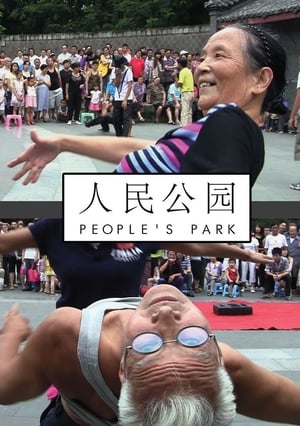
Be a Woman(2011)
Drag queen show in China.
Over the course of 3 years, Fan Popo visited a bar called “Only-Love” in Nanning, China, getting to know the dancers and drag queens there and discovering who they really were behind their exuberant costumes and personas.
Movie: Be a Woman
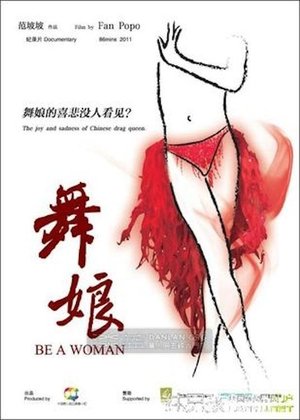
舞娘
HomePage
Overview
Over the course of 3 years, Fan Popo visited a bar called “Only-Love” in Nanning, China, getting to know the dancers and drag queens there and discovering who they really were behind their exuberant costumes and personas.
Release Date
2011-01-01
Average
5.2
Rating:
2.6 startsTagline
Drag queen show in China.
Genres
Languages:
普通话
Recommendations Movies
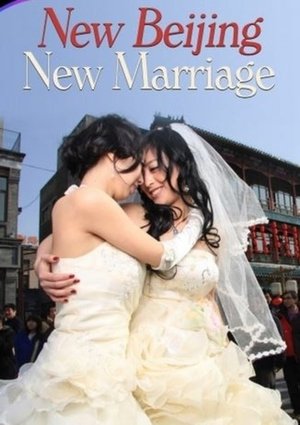 10.0
10.0New Beijing, New Marriage(zh)
This short film shows a quest of two homosexual couples for understanding from the people in their surroundings, through meetings and exchanges on a square in the heart of Beijing.
 6.9
6.9Old Man Junior(en)
Morbius Jr, now an OId Man, is nearing the end of life, when he finds the last hope for all Morbkind. However, as he fights to protect the future of Morbheads, he finds himself facing off against an unlikely of enemy... HIMSELF.
 6.2
6.2Box(en)
The execution was scheduled and the last meal consumed. The coolness of the poisons entering the blood system slowed the heart rate and sent him on the way to Judgement. He had paid for his crime with years on Death Row waiting for this moment and now he would pay for them again as the judgment continued..
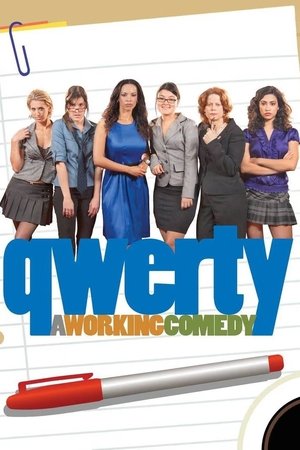 5.7
5.7Qwerty(en)
Conglomerated Assets, a brokerage firm is sinking fast as its CEO checks out and leaves the company to his inept film school drop out son. Enter Quincy, Waverly, Erica, Rudy, Tina and Yasmine. Team QWERTY--six sexy secretaries that must save the day.
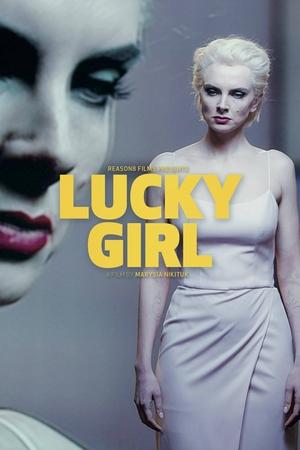 5.9
5.9Lucky Girl(uk)
Nina is a successful TV star, but her life changes when she is diagnosed with cancer. Facing a personal crisis, she has to confront her deepest fears.
 6.1
6.1The Duel(es)
Ernesto lives in depression and decides to hire a hit-man to end his own life. However, his plan takes an unexpected turn when he meets Rita, whose love gives him a new reason to live.
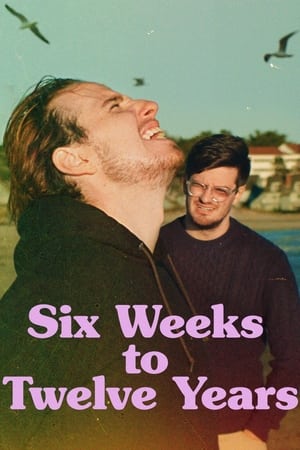 6.1
6.1Six Weeks to Twelve Years(en)
After the death of their abusive father, two estranged twin brothers must reunite and sell off his property.
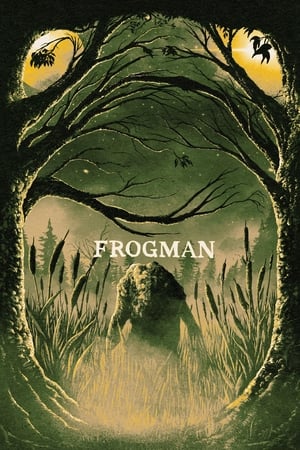 5.2
5.2Frogman(en)
An amateur filmmaker, struggling to turn his passion into a career, returns with friends to Loveland, Ohio, the location of his first, notorious sighting of the Frogman, determined to obtain irrefutable proof that the cryptid legend exists.
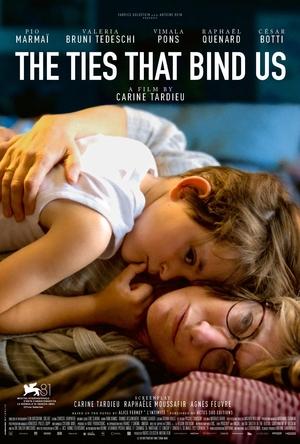 7.2
7.2The Ties That Bind Us(fr)
A young single father trying to find the strength to love. A feminist librarian, single by conviction, who’s decided that she won’t be a mother. A six-year-old child trying to find a place in a new family structure. By revealing their aspirations, their fears, their choices, Carine Tardieu depicts different ways in which humans create families.
 9.5
9.5Change(en)
Adam Ondra has been considered the best climber in the history of climbing for several years now. Even though he is only 19. Despite the fact that he is studying at a demanding grammar school, he is maybe the most traveling and definitely the most watched climber of today. It is almost an impossible task to combine and manage top sporting performances on the rocks, a difficult studying and the never ending carousel of competitions, interviews, festivals and slide-shows. Adam is taking his A level exams in a few weeks. Even though he is a top student, he decides not to go to university. Instead, he and 3 of his friends are setting on a long journey to the unknown north of Europe. Remote areas of Norway and Sweden are hiding some undiscovered climbing and natural treasures. The first really FREE journey beyond the limits of human possibilities may begin...
 7.0
7.0The Life and Times of Don Luis Buñuel(en)
Made a year after Luis Buñuel's death in 1983 this is an illuminating portrait of the surreal and visionary director, featuring clips, archival interviews, and commentary from scholars and contemporaries including Catherine Deneuve, Fernando Rey, and Jeanne Moreau. Directed by Anthony Wall with readings from Buñuel's autobiography by Paul Scofield. Six trims to meet copyright restrictions.
 6.0
6.0Krásno(cs)
Story follows two best friend on private investigation. They are going to their hometown to prove that Michals mother was killed by his stepmother.
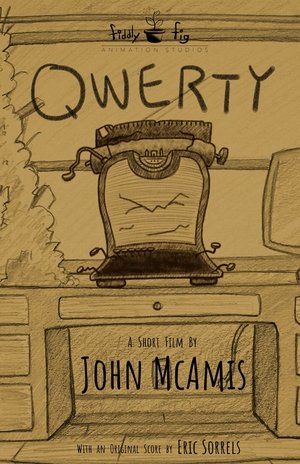 5.9
5.9Qwerty(en)
A grieving young inventor finds solace in repairing an antique typewriter.
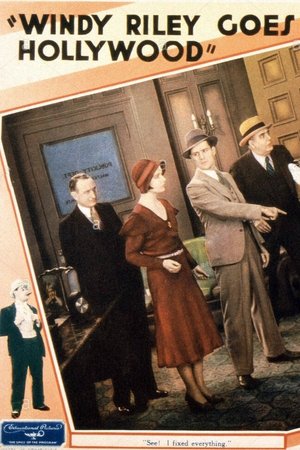 5.0
5.0Windy Riley Goes Hollywood(en)
A driver on a non-stop race from New York to San Francisco gets detoured to Hollywood, where he winds up working as a publicity man for a movie studio and assigned to revive the career of a beautiful but fading star.
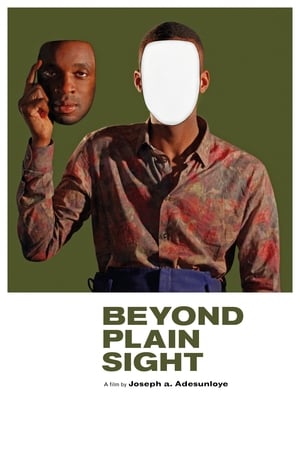 5.3
5.3Beyond Plain Sight(en)
Ryan is a popular member of his community. He’s charming, helping and a social butterfly but Ryan has a secret.
 8.0
8.0The Intervention(en)
All good things must come to an end. Or do they? Adam Green comes face to face(s) with one of his worst nightmares in the 20th annual ArieScope Halloween short film.
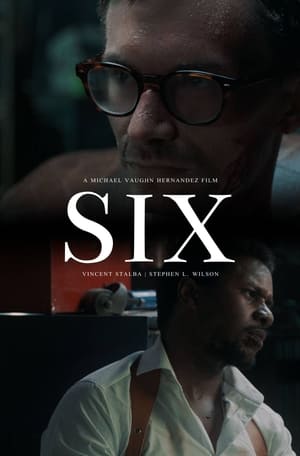 7.8
7.8Moments: Six(en)
A serial killer and the detective who tracked him down find themselves in an unexpected stalemate.
Similar Movies
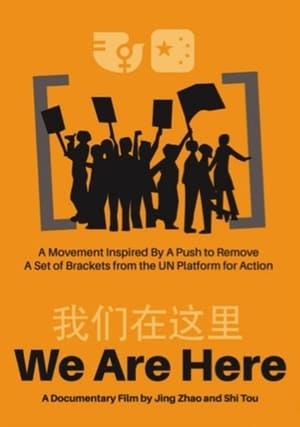 7.0
7.0We Are Here(zh)
What happens when 300 lesbians from around the world attend the largest United Nations conference? How did two busloads of lesbians headed to an underground nightclub help spark the birth of a lala (LBT) movement in China? At the 1995 Fourth World Conference on Women in Beijing, the first ever lesbian tent at an UN NGO Forum was created. Emerging from hidden shadows of shame and invisibility, Chinese lalas began a hard-fought path of deliverance from themselves, from family, and from an apprehensive environment. In doing so, they sought empowerment and change as they explored concepts and issues from self-affirmation to rights consciousness. The film powerfully moves forward to the present day and shows the drastic change in today’s young feminist lalas – their challenging of sexism and homophobia with daring public street actions on subways – a parallel action to their forerunners in 1995, with much vigor and defiance 20 years later.
 3.0
3.0Pathway(zh)
Xu Xin’s film “Dao Lu” (China 2012) offers an exclusive “in camera” encounter with Zheng Yan, an 83 year-old veteran of the Chinese Red Army, who calmly relates how he has navigated his country’s turbulent history over three-quarters of a century.Born to a wealthy family in a foreign concession, Yan joined the Chinese Communist Party (CCP) in 1941 because he sincerely believed in the socialist project, and in its immediate capacity to free China from the Japanese yoke and eradicate deep-rooted corruption.
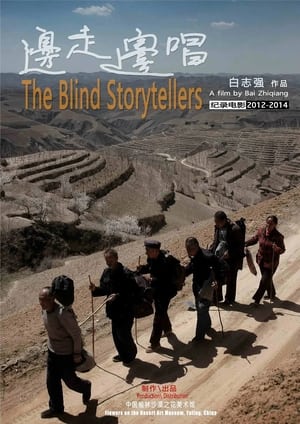 9.0
9.0The Blind Storytellers(zh)
Li Shouwang is the leader of a blind storytellers team, learned storytelling at the age of 19. His childernare living hard in other cities. Li's money amost goes to his children's pocket every year. But with urbanisation, the storytellers have lost almost all their audience. As the conflict between the storytelling team and the village team intensified, his son, who was far away from home, became the only spiritual sustains... When he was excited that his son would be taking his family home for Chinese New Year, what's await is a sigh.
 7.6
7.6Twenty Two(zh)
Follow the lives of the elderly survivors who were forced into sex slavery as “Comfort Women” by the Japanese during World War II. At the time of filming, only 22 of these women were still alive to tell their story. Through their own personal histories and perspectives, they tell a tale that should never be forgotten to generations unaware of the brutalization that occurred.
 6.6
6.6The Iron Ministry(zh)
Filmed over three years on China’s railways, The Iron Ministry traces the vast interiors of a country on the move: flesh and metal, clangs and squeals, light and dark, and language and gesture. Scores of rail journeys come together into one, capturing the thrills and anxieties of social and technological transformation. The Iron Ministry immerses audiences in fleeting relationships and uneasy encounters between humans and machines on what will soon be the world’s largest railway network.
 6.2
6.2Doctor Ma's Country Clinic(zh)
"Huangyangchuan, Gansu province, China. It's an arid mountain area with poor roads. Ma Bingcheng is well-respected local doctor, so many patients (most of them farmers) come to see him every day. In his small clinic, people chat with each other about their lives, local conditions, or the people they know. The clinic seems to open up like a microcosm, the information and experiences of different people intertwine, revealing the conditions of typical Chinese farmers, and the typical fates of both young and old--"
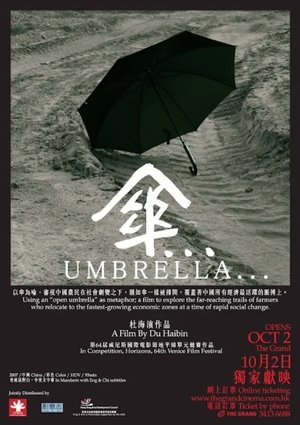 6.3
6.3Umbrella(zh)
Workers, peasants, soldiers, students and merchants were five groups of Chinese society in the 1950s, after the so-called elimination of the exploited class. Borrowing this concept, the umbrella is taken as the clue to rediscover changes in various social classes after the economic reform, and to analyze the social problems in China. Workers making umbrellas, merchants selling umbrellas, students looking for jobs in the rain. Umbrella is used as a metaphor that can be seen everywhere. As the raindrop, what we see is sometimes clear, sometimes untraceable.
 0.0
0.0China. The Arts – The People(de)
China marks the beginning of the extensive Asian theme in Ottinger’s filmography and is her first travelogue. Her observant eye is interested in anything from Sichuan opera and the Beijing Film Studio to the production of candy and sounds of bicycle bells.
 6.5
6.5Mama Rainbow(zh)
For Chinese parents, finding out that their kid is gay usually presents a major tragedy, with the big majority utterly unable to accept the homosexuality of their son or daughter. However, during recent years a fresh rainbow wind has been blowing over the Chinese mainland: a pioneer generation of Chinese parents has been stepping up and speaking out on their love for their gay kids. This documentary features 6 mothers from all over China, who talk openly and freely about their experiences with their homosexual children. With their love, they are giving a whole new definition to Chinese-style family bonds.
 9.0
9.0Demolition(zh)
"If the old doesn't go, the new never comes" recites a teenager hanging out near a demolition site in the center of Chengdu, the Sichuan capital in western China. In Demolition, filmmaker J.P. Sniadecki deconstructs the transforming cityscape by befriending the migrant laborers on the site and documenting the honest, often unobserved, human interactions, yielding a wonderfully patient and revealing portrait of work and life in the shadow of progress and economic development.
 0.0
0.0First Vote(en)
A soon-to-be first-time voter, the filmmaker’s thought-provoking journey into the Rust Belt and South captures four Asian American voters’ ardent first time grassroots political participation ignited by the 2016 rise of “Chinese Americans for Trump.” FIRST VOTE is a character driven cinema verité style film chronicling the democratic participation of four Asian American voters from 2016 through the 2018 midterm elections.
 7.0
7.0The Yellow Bank(zh)
A short documentary that captures the longest total solar eclipse of the 21st century, The Yellow Bank takes you on a contemplative boat ride across the Huangpu River in Shanghai, China. Filmmaker J.P. Sniadecki, who lived and worked in Shanghai nine years earlier, uses the eclipse as a catalyst to explore the way weather, light, and sound affect the urban architectural environment during this extremely rare phenomenon.
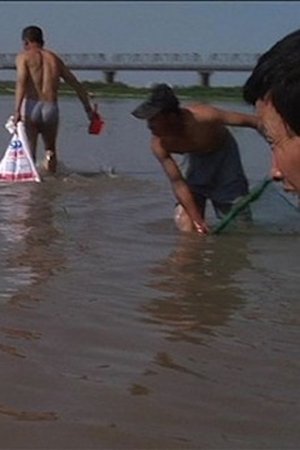 0.0
0.0Songhua(zh)
In northeastern China the Songhua River flows west from the border of Russia to the city of Harbin, where four million people depend on it as a source of water. Songhua is a portrait of the varying people that gather where the river meets the city, and an ethnographic study of the intimate ways in which they play and work.
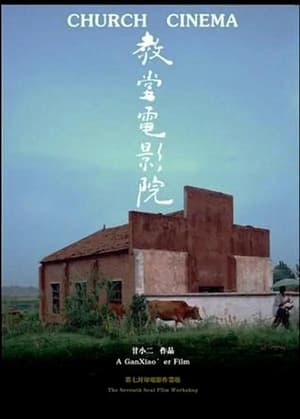 0.0
0.0Church Cinema(zh)
In the summer of 2007, Gan Xiaoer led an independent film projection team, using projectors and self-made screens, to tour villages in Henan province to show his feature film "Raised from dust" for 8 times, and recorded the process. The 81-minute version of Church Cinema records only one stop, the Qiliying Church, where "Raised from dust" was shot.
 0.0
0.0We Sit In Silence At The Memorial Table(en)
A silent film by Vietnamese director Truong Minh Quy in collaboration with Belgian director Nicolas Graux, was shot on the set of a film by Graux. We Sit in Silence at the Memorial Table is inspired by Educational Objectives, a poem written by Aleksey Garipov and translated to English by Nicolas Graux.
 8.0
8.0Heidi in China(en)
In 1946, Heidi is entrusted to a Swiss family by her father. He will never come back for her. Today, François Yang questions his mother about her past. What follows is a journey to China, a quest to reconstruct memory. Through contact with her brothers and sister, Heidi measures the extent of the drama experienced by her family that remained in China, persecuted by the Communist Party.
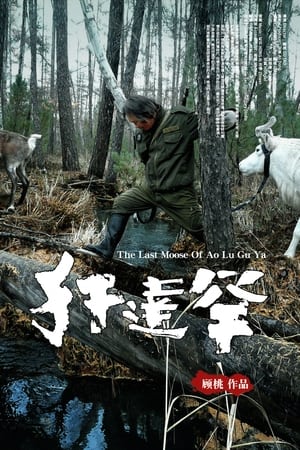 8.0
8.0The Last Moose Of Ao Lu Gu Ya(zh)
Documentary about a tribe of indigenous people in northern China.
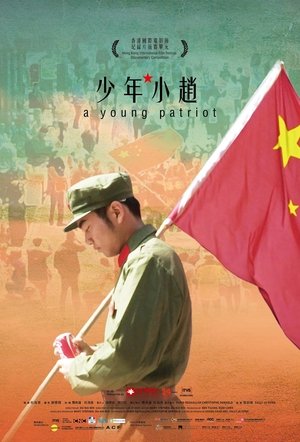 7.0
7.0A Young Patriot(zh)
A documentary chronicling the coming of age of a young chinese man.
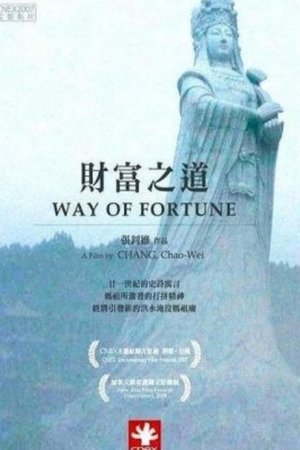 0.0
0.0Way of Fortune(zh)
"Mazu" or "The Sea God" has been the most important religious belief of ordinary people in my hometown for four hundred years. Along the coast of China and even in the Nanyang region, there is at least one temple dedicated to Mazu in various seaside cities-this geographical and historical distribution coincides with the contemporary economic or industrial area of Chinese society. It is frustrating that rapid economic development has led to global warming. The factories located on the coast of southern China from all over the world will eventually cause flooding and inundate these temples dedicated to Mazu. This is indeed a very ironic discovery for our civilization, "We", not only Chinese or all human beings, now or in the past, how can we Chinese avoid this upcoming tragedy?

